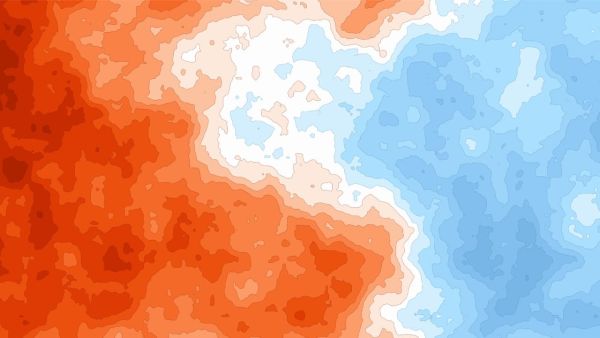
As oceans warm due to climate change, a toxic threat grows. Learn how low-oxygen zones are increasing methylmercury levels in fish, posing a serious health risk.
Climate change may lead to a rise in harmful toxins in the ocean, according to a recent study. The research suggests that as the planet warms, the levels of methylmercury could increase in the seas. Methylmercury is a toxic substance and particularly harmful because it accumulates in fish and seafood. Eating it in large amounts can harm health especially the brain and nervous system.

The study, led by Eric Capo from Umeå University and published in Nature Water, looked back in time to see how changes in ocean conditions in the past affected the production of methylmercury. The findings show that when there was less oxygen in the water, certain tiny organisms, or microbes, that create this toxin thrived and spread.
Harmful Methylmercury Toxin Risk
Around 9,000 to 5,500 years ago, during a warm and moist period, the Black Sea experienced a drop in oxygen levels. This lack of oxygen allowed the toxin-producing microbes to grow. Scientists discovered traces of these microbes by analyzing DNA in sediment layers from the bottom of the Black Sea, which dated back 13,500 years.
Today, climate change is creating similar low-oxygen environments in many coastal areas, including parts of the Baltic Sea. This is happening because warmer waters do not mix well, and the growth of algae, which consume oxygen when they die, leads to “dead zones.” These areas provide ideal conditions for the microbes that create methylmercury.
Capo explained, "Our findings show that climate warming and oxygen loss alone—without industrial mercury pollution—can create hotspots for methylmercury production."
This is a concern because it implies that as the climate continues to change, the amount of methylmercury in seafood could increase, posing greater health risks.
Why Is The Research Important
The researchers also compared the ancient microbial communities with those present in the Black Sea today. They noted that while past changes were mostly due to natural climate shifts and organic material buildup, modern changes include pollution from human activities and excess nutrients that cause oxygen loss.
This shows how changes in ocean oxygen levels, caused by climate change, have influenced, and will continue to influence, the production of methylmercury. There is an urgent need to understand the long-term impacts of climate change on marine ecosystems and human health.
This could result in higher levels of methylmercury in fish and seafood, increasing the risk for people who rely on these as food sources. Scientists are urging more attention to ocean health and stronger actions to combat climate change than ever before.
-
Munia Paithani’s choice of women; Banarasi saree is becoming the attraction of Diwali this year

-
Samsung’s Made-In-India WindFree Cassette ACs Launched In India; Check Features, Price And Availability | Technology News

-
September 2025 Seo Updates: Learn the big changes of Google, Chatgpt and Meta!

-
Driving Home the Maruti Celerio with Impressive Features and Discounts:

-
Asian TT Team Championship: Indian Pip DPR Korea 3-2 At Bhubaneswar’s Kalinga Stadium
